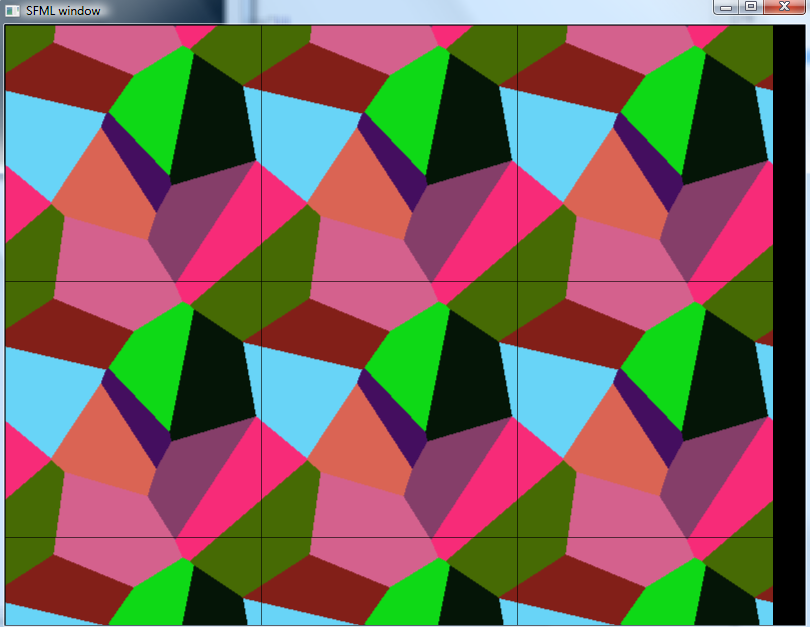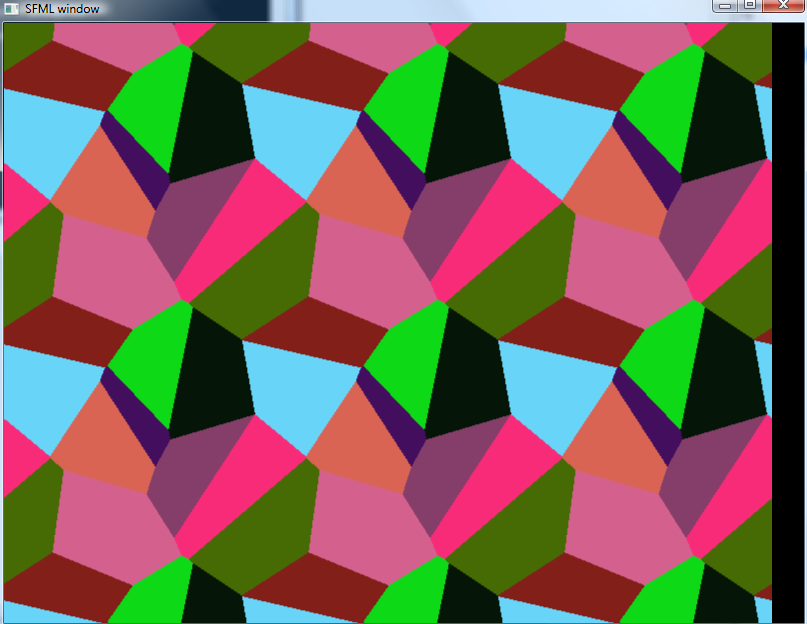31
Graphics / Textures not tiling properly
« on: July 29, 2009, 04:53:33 pm »Quote from: "Laurent"
QuoteAnyhow, I'd go with that new interface, just with a note that it has this power-of-two requirement.
From the beginner's point of view:
Yep, it is not beginner friendly. But would be advanced user friendly.
Though advanced user can always change that with a OpenGL call.
Quote from: "Laurent"
QuoteBtw, did I mention that when I call Image.SetSmooth(false) it did fix this problem.
No, but I did mention it
Hehe, I meant that did I confirm that it did work :wink:



